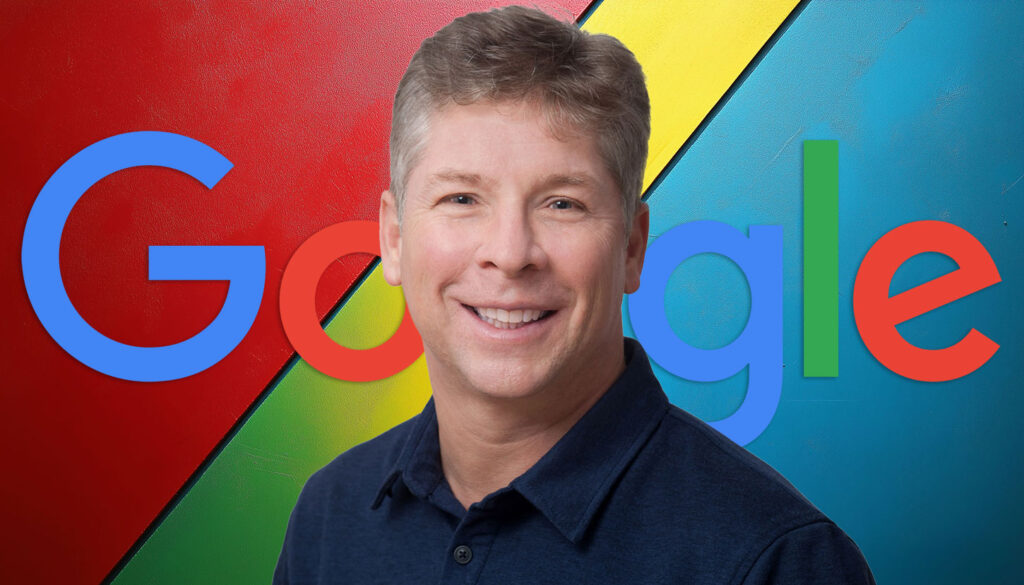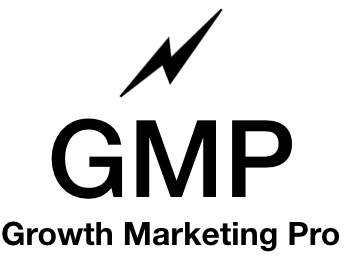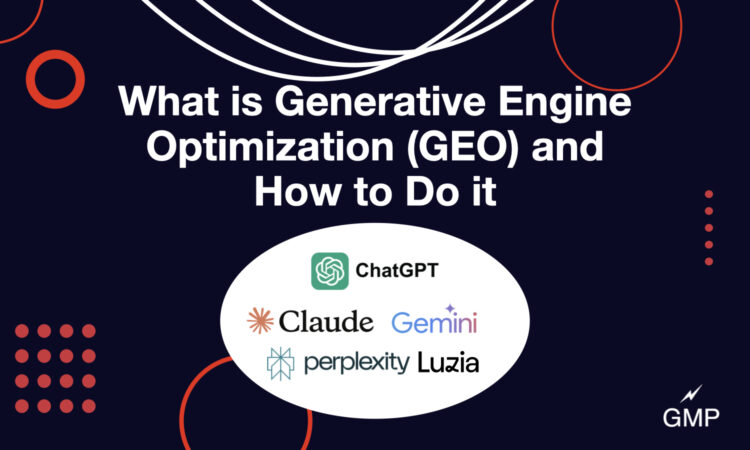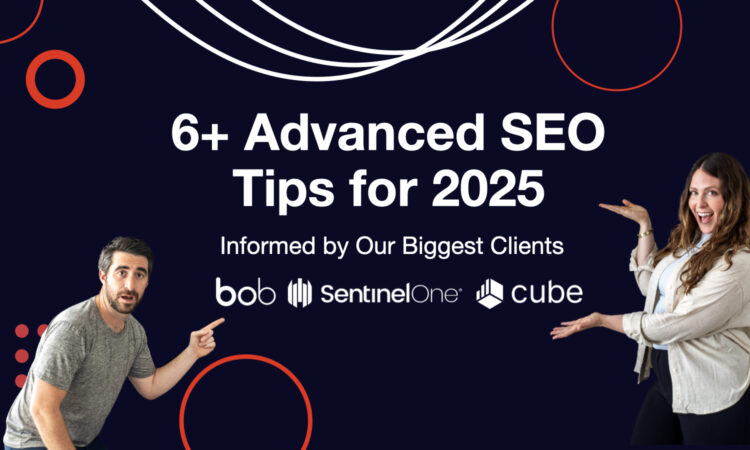- What is Generative Engine Optimization (GEO) and the 8 Ways to Do It - March 26, 2025
- 12 Best Product Tours Software - November 18, 2024
- 24+ Best Webinar Software Platforms For Every Business in 2025 (Ranked & Reviewed) - October 19, 2024
This story is crazy, but true:
Last week, one of our clients (a Series C fintech) had a board meeting. Apparently, the discussion was about the future of SEO and whether it makes sense to continue investing in SEO indefinitely.
With generative engine optimization (GEO) top of mind, the board members decided they would all query ChatGPT with “what is the best X software?” Sorry, I can’t tell you the industry vertical specifically for confidentiality reasons!
Lo and behold, all five board members who asked ChatGPT received the same response – our client! No bullshit.
So what are we doing right for this client?
- We do great traditional SEO for them – linkbuilding, content creation, technical SEO, etc. We also have some more sophisticated strategies that include productized pages and conversion rate optimization.
- We have a few generative engine optimization (GEO) tricks. That’s what this blog post is about. I’ll share those tactics with you.
I’ll caveat this all with nobody really knows how the LLMs (ChatGPT, Perplexity, etc.) work. But great SEOs make informed guesses.
I’ll share what we know about GEO based on our experience and the latest and greatest information on the web.
Ready to learn how to get your piece of the LLM pie?
Let’s dive in.
Table of Contents
What Is Generative Engine Optimization?
Generative engine optimization, or GEO for short, is the strategy and implementation of optimizing your brand’s presence for any AI-based platforms – Perplexity, ChatGPT, Claude, etc. These AI engines draw on massive datasets to not only retrieve relevant information, but also to generate entirely new content, summarize existing sources in response to users’ prompts and ultimately reason with what is being asked.
This seminal paper from arXiv concludes that GEO practitioners can improve LLM visibility by 40% or more with no additional content.
I think that figure is understated based on our successes so far.
LLMs are rapidly reshaping how people discover, interact with, and consume content. Platforms like ChatGPT, Perplexity, Claude, and Google Gemini are no longer fringe technologies – they’re the future of search and query resolution.
8 Key Elements of an Effective GEO Strategy
So that study by arXiv (with contributions from Princeton and Indian Institute of Technology Delhi students) concluded a few things were most impactful in effective GEO.
So as not to keep you on the edge of your seat, here’s what the paper determined influenced GEO the most:
But to be honest, we feel like a lot is missing. Based on our experience (and a few additional sources on the web), these are the 8 things you need to do:
1. Quotes, cited sources, and statistics
This one’s pretty understandable. The LLMs like to cite websites that have quotations and cite sources. After all, the LLMs are only as good as the results they spit out, so it stands to reason that they want to err on the side of citing websites with lots of sources cited, expert quotes and other trust-building elements. Crazy enough, the arXiv paper even found that “fake and artificial” quotes and sources contributed to increased generative engine search visibility.
2. Conversational queries – get specific (FAQs)
When building content, think in terms of user prompts or queries. Generative AI often responds to complex questions, but it turns out the AI is a little “dumber” than it may appear. “Exact match” questions and answers tend to show up in the LLMs very often. So instead of writing content like “the best HR software” write “the best HR software for technology companies.” You’ll be much more likely to show up for the “…technology companies” query if you have that exact content. No matter your business, use FAQs wherever possible – they’re some of the best ways to get those “exact match” answers.
For extra GEO credibility, include references or statements that tie your content to trending topics or current events in your industry. This contextual relevance can signal to LLMs that your content is timely and authoritative.
3. Write with authority
The #4, 5, 6 and 7 tips in the arXiv article are all related to writing style. It seems that clear, authoritative writing with technical terms (i.e. industry jargon) wins. Quite honestly, if you’re focused on SEO, I hope you’re already doing this.
4. Be unique
In addition to style, you now have to be more unique than ever.
For years, SEOs pumped out keyword-stuffed blog posts, hoping to climb Google’s ranks (we’re guilty). But that hack is becoming more obsolete (however, there’s a lot of nuance to that statement than I’ll get into in this post). AI-powered search is now answering user questions directly—often without displaying a single link.
Take the fitness industry: Every personal trainer’s website has a bland “Top 10 Workout Tips” post. Zoom out—how many trainers exist worldwide? They’re all regurgitating the same generic advice. Google sees this and says, “No thanks.” Instead of ranking millions of copy-paste articles, it simply serves up the answer itself.
This isn’t a prediction—it’s happening now. Websites that built their rankings on shallow, keyword-driven content are vanishing from search results. Google’s AI is cutting out the fluff, and if your content isn’t offering something fresh, it won’t stand a chance.
Google’s new approach prioritizes content that goes beyond AI-generated summaries. Instead of surfacing five identical links, it’s favoring content that moves the reader forward—what’s the next step after their initial question?
Danny Sullivan (Google’s Search Liaison) confirmed this at Search Central Live NYC, emphasizing that AI Overviews are rewriting the rules of search.

In synthesizing Danny Sullivan’s statements, Jono Alderson (former Head of SEO at Yoast) said (gasp): “we need to stop assuming that producing content is a fundamental or even necessary part of modern SEO” (source).
Bottom line: The era of churning out basic blog posts for SEO is over (to some degree). To win, you need to create content that AI can’t summarize in a single snippet—original research, expert insights, unique frameworks. Otherwise, you’re just another forgettable link in a sea of sameness.
5. Consistency of branding
This is a great post and video about how important brand consistency is for GEO. To summarize: Masterclass can’t rank for “best online courses” in ChatGPT and Coursera ranks for the query practically every time. It turns out the answer is simple: Coursera uses “free online courses” as its tagline almost everywhere.
When I asked ChatGPT itself how to rank higher with more consistent branding it told me to:
- Use the same name for my business everywhere
- Use a tagline
- Repeat the tagline consistently
To be honest, it’s sort of silly to say “Tesla, the electric vehicle company,” instead of simply “Tesla.” But hey, if it works!
6. Linkbuilding
If you’re an LLM, will you cite a source with links from TechCrunch, NY Times, and Wall Street Journal or the one with a few links from mommy blogs? Duh!
Links are the foundation of the web, not just Google’s algorithm. There is no other more reliable way to navigate the web and discern the authoritativeness of websites than links. 10 out of 10 advanced SEOs interviewed by Contactora agreed that linkbuilding will continue to be hugely important in the world of GEO.
So which links matter? It seems that more and more, it’s high authority links – quality over quantity. Personally, we’re incredibly bullish on high-quality link building going forward.
📚Read more about our linkbuilding services here.
7. Use Schema and semantic markup
Generative AI tools rely on structured data to improve comprehension, entity recognition, and categorization. Without clear metadata, AI models may misinterpret your content or fail to associate it with relevant queries. By using Schema.org markup, you provide explicit signals about your content’s meaning, increasing the chances that LLMs will reference your information correctly.
We’d recommend the following schema:
- Article (schema:Article): Helps AI understand blog posts, news articles, and general web content.
- FAQPage (schema:FAQPage): Ideal for structuring frequently asked questions so AI can directly pull Q&A pairs.
- HowTo (schema:HowTo): Guides AI in categorizing step-by-step instructions for tutorial-style content.
- Product (schema:Product): Ensures LLMs correctly categorize eCommerce and SaaS-related content.
- Organization (schema:Organization): Establishes credibility and links your brand with authoritative mentions in AI-generated outputs.
- Person (schema:Person): Useful for personal branding and expert author recognition in AI-generated summaries.
8. Other things we think work
Again, nobody knows how to rank in LLMs. GEO is still so new and evolving so fast.
But we’ve met with the founders of a bunch of LLM search visibility tools (think an SEO tool for LLMs) and we’ve heard a few other things that sound super interesting. We can’t verify these ones like the other 6 on this list, but they’re worth mentioning:
- Reddit: We’re nearly certain of this one. LLMs frequently scrape or are trained on Reddit discussions, especially from Subreddits with high engagement. If your brand, product, or website is discussed positively and frequently on Reddit, it increases the chance that AI models will recognize and reference it in responses. Plus, it helps with that “entity recognition” and consistency (i.e. more brand recognition).
- Listicles: It seems that brands that appear in “best of” listicles rank higher. So it may be worth doing some outreach to all the bloggers writing about your space and asking them to include you in their listicles.
- Case studies: If you’re in an industry where case studies matter (almost any B2B industry), add a lot of case studies on site! Anecdotally, it seems there’s some correlation between number of case studies and ranking in the LLMs.
- Answer questions fast: Don’t make a reader sift through paragraphs of junk to get to an answer to their question. Deliver the answer in the first few sentences of a piece of content (Google likes this anyway).
- LLMS.txt: We just implemented this for one of the larger SaaS businesses we work with. Time will tell what the impact is, but Reddit users do seem to think it’s promising. It’s a standardized file that lives on your website that helps LLMs understand what your site is about. Some people claim that implementing it has increased LLM visibility by 15%+.

📚Read more about our Reddit services here.
SEO vs. GEO
As you can tell from the list above, the disciplines aren’t hugely different.
Similar to traditional SEO, GEO focuses on ensuring your brand and content remain highly visible and persuasive in the results generated by LLM-driven platforms. By adopting GEO principles early, you position your organization (or your clients) at the cutting-edge of organic search discovery.
In my opinion, the major differences are:
- GEO really values “exact match” or very explicit Q&A and brand descriptions
- Citing sources matters even more for GEO: even if the sources you’re quoting or citing are flat out wrong, the LLMs still seem to value the authority of quoting or citing sources.
How GMP Builds a GEO Strategy
We’re early adopters… we always have been. As LLMs became more prominent, we began reverse-engineering how these engines “learn” about brands and websites. Today, our comprehensive GEO strategy includes:
- Site Audit with an LLM Lens
We audit your website not just for traditional SEO factors (metadata, content depth, loading speed) but also for clarity, structure, and factual correctness. Our proprietary “LLM-Readiness Checklist” ensures your site is optimized for AI-driven results. - Content Overhaul & Expansion
We identify topics most critical to your brand’s success, then develop robust content hubs with everything from short Q&A sections to long-form whitepapers. Each piece is carefully structured with advanced markup to signal relevance and authority. - Schema & Taxonomy Refinements
Beyond standard schema, we implement advanced taxonomy frameworks to help AI parse your site’s context. Our approach can include custom structured data that better describes your products, services, or expertise areas. - Prompt Strategy & Conversational Engagement
We work with your team to create or refine brand guidelines, ensuring your brand voice is suitable for generative responses. We then map user prompts (the questions users might ask an LLM about your niche) to well-structured answers on your site. - Ongoing R&D with AI Platforms
We continuously experiment with emerging LLMs (Claude, Perplexity, Bard, Gemini, and more) to see how they surface answers and content. This research helps us refine your GEO strategy in real-time as these platforms evolve.
Reporting on GEO Success
Measuring GEO is different from traditional SEO. Instead of focusing solely on rankings and clicks, we track:
- AI Citations and Mentions: We use specialized monitoring tools to see if your brand or domain is being referenced in AI-generated answers. Today, we’re using a tool called otterly.ai. It’s not perfect, but it’s a start.
- Brand Sentiment in Generative Responses: We analyze user screenshots, AI conversation logs (when available), and user feedback to ensure brand mentions are positive and on-message.
- Prompt Coverage: We identify relevant user queries and see if they trigger references to your brand. This helps gauge whether content improvements are effectively expanding your presence.
- Referral Traffic from AI Sources: While not 100% of all AI-driven traffic is trackable (some of it comes in as direct traffic), we can still segment out large portions of website referrals coming through a search on somewhere like ChatGPT. Regularly monitoring and reporting this can help ensure your GEO is working, especially when traditional SEO traffic may start declining.
- Conversion and Micro-Conversions: Even in times when website traffic routes differently and does not come in through a referral, we set up tracking to measure the resulting leads, sign-ups, or sales.
The Future of GEO
Generative AI models are still in their infancy. As these platforms scale and integrate with devices, search engines, and daily routines, the notion of “search” will feel more like an ongoing conversation. Optimizing for that conversation is the essence of GEO. By ensuring your site is structurally and contextually aligned with LLMs, you future-proof your brand’s visibility and authority.
Let’s Pioneer GEO Together
Generative Engine Optimization isn’t just an extension of SEO—it’s a transformation of digital visibility. The more proactive you are about building high-authority, structured, and compelling content for LLMs, the more likely your brand is to be spotlighted as an authoritative source.
Ready to lead the next revolution in search? GMP can help you build a GEO framework that locks in your brand’s future success. No one else in the industry is tackling generative optimization with our level of depth, foresight, and focus on tangible ROI. Reach out to us, and let’s chart this new frontier together.




